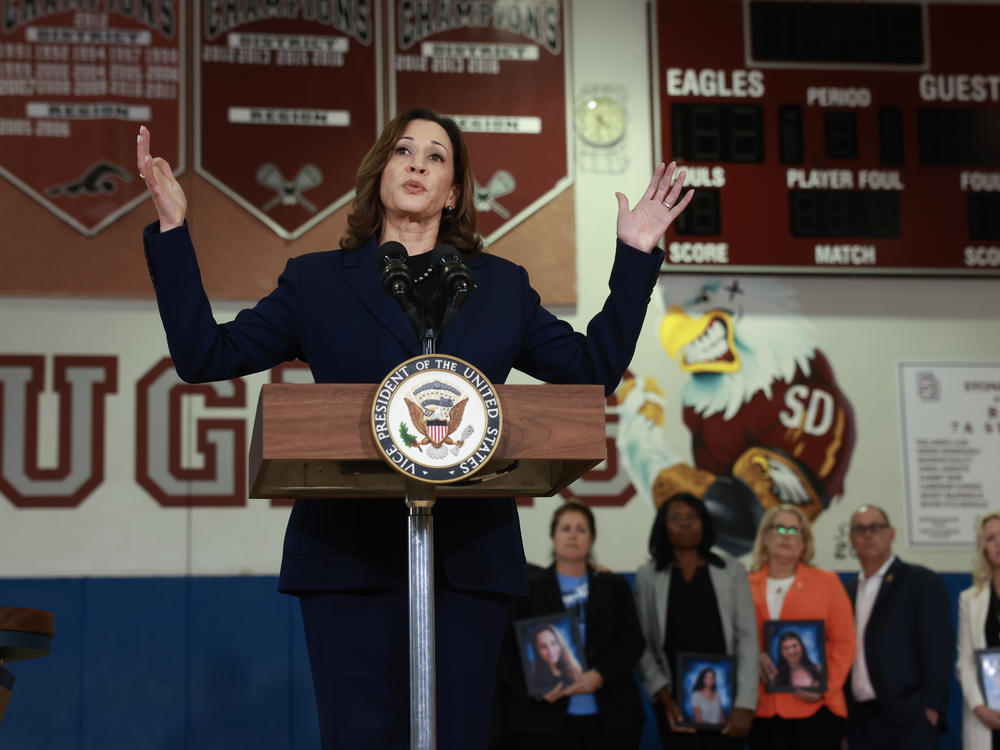Section Branding
Header Content
In Parkland, VP Harris urged greater use of red flag laws to prevent shootings
Primary Content
Vice President Harris on Saturday made a push for the use of red flag laws when she visited Parkland, Fla., where one of the deadliest school shootings on record in the United States happened in 2018.
"One of the reasons I'm here is to challenge every state: Pass a red flag law," Harris said.
Close to half of U.S. states have created programs known as red flag laws that allow officials to temporarily take firearms from people who might pose a threat. According to Harris, the laws — which are opposed by many gun rights groups and activists — give communities a way to intervene proactively "before a tragedy occurs."
While in Parkland, Harris walked the halls of Marjory Stoneman Douglas High School with family members of some of the 17 victims killed in that mass shooting. The building where it happened is set to be demolished this summer.
"This school is soon going to be torn down," Harris said, "but the memory of it will never be erased."
Harris oversees the White House Office of Gun Violence Prevention.
She is also a point person for Democrats for key groups the party needs to turn out to vote in November, including young voters, women and voters of color. Gun violence is an important issue for these groups of voters.
Harris urged states to use resources set aside for red flag laws
In Parkland, Harris announced a new effort from the White House for states to make greater use of red flag laws, which can be used to prevent shootings by temporarily removing guns from owners who pose a danger to themselves or others.
In total, 21 states and the District of Columbia have red flag laws, including Florida, which passed one in the wake of the Parkland shooting. These laws allow people to seek court orders known as extreme risk protection orders.
But according to Harris, many states have failed to actively or fully implement their red flag programs.
"Only six have taken up the offer we have made through our administration of federal resources for training and implementation," she said. "We've got some resources."
Harris announced the creation of a new national resource center to provide training and technical assistance to states, local governments, law enforcement and health care providers using the laws.
"These are just some of the ways that we can learn from what happened here," Harris said.
She also called for the passage of universal background checks, a ban on military- and "assault rifle"-style firearms, and more funding for mental health care in communities.

